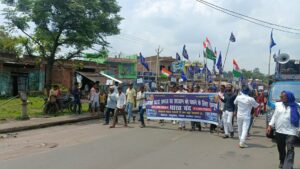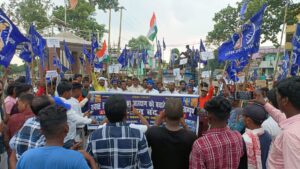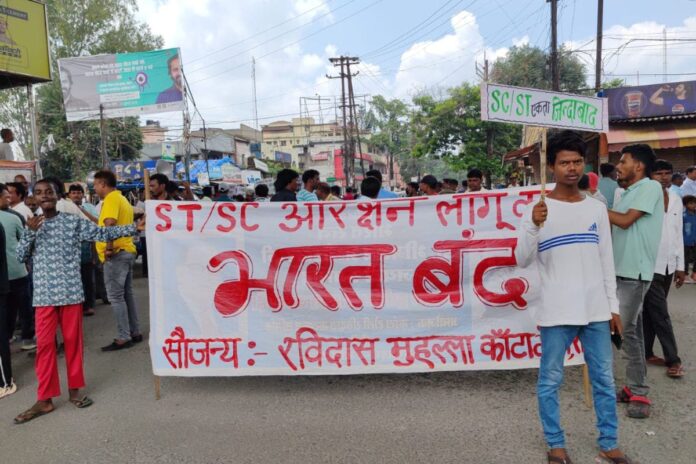On August 21, 2024, India witnessed a nationwide bandh organized by the Reservation Bachao Sangharsh Samiti to protest a recent Supreme Court ruling on reservations for Scheduled Castes (SC) and Scheduled Tribes (ST). The bandh was largely supported by various political and social organizations across the country. In cities like Ranchi, Jharkhand, and other regions, the shutdown saw significant disruptions in daily activities.
Reason Behind the Bharat Bandh
The bandh was triggered by the Supreme Court’s decision on August 1, 2024, allowing states to create sub-categories within the SC and ST communities. The ruling emphasized that those who are most in need should get priority in reservations. This decision led to widespread discontent, with critics arguing that it could undermine the broader goals of social justice by fragmenting the benefits intended for marginalized communities.

The protestors, led by the Reservation Bachao Sangharsh Samiti, demanded the reversal of the decision, claiming it would dilute the protective measures guaranteed under the Constitution. The bandh was also intended to highlight concerns about the potential implications of such categorization on the unity and solidarity of SC/ST communities.
Impact of the Bandh in Ranchi, Jharkhand
In Ranchi, the bandh had a visible impact with private bus services suspended and markets largely closed. The ruling Jharkhand Mukti Morcha (JMM) expressed support for the shutdown, reflecting the broader alignment of regional parties with the protest. There were reports of peaceful rallies, but public transportation was significantly affected. Schools and some government offices remained open, although attendance was low.
The district administration and police were on high alert, anticipating disruptions. Security was beefed up in sensitive areas, and precautionary measures were taken to avoid any violent outbursts.

Protests in Ranchi, while mostly peaceful, saw roads being blocked, causing traffic issues across the city.
National Response and Preparations
Across India, the bandh received support from various quarters, with strong participation in states like Uttar Pradesh, Bihar, and Maharashtra. In some regions, there were reports of road blockages, rallies, and forced shop closures by protestors. In Bihar, members of the Bhim Sena and other groups actively participated, blocking national highways and organizing protests in cities like Patna and Sheikhpura. Meanwhile, in Uttar Pradesh, areas like Agra and Firozabad were on high alert, with heavy police deployment to maintain law and order.
Political figures, including Samajwadi Party leader Akhilesh Yadav, endorsed the bandh, calling it a necessary movement to protect the rights of marginalized communities. The protest was framed as a battle against any attempt to weaken constitutional safeguards.
The Bharat Bandh on August 21, 2024, underscored the ongoing debate over reservation policies in India. The Supreme Court’s decision has opened a new chapter in the discourse on social justice, with strong reactions from both supporters and critics. As the dust settles, it remains to be seen whether the demands of the protestors will lead to policy changes or further legal battles. For now, the bandh stands as a significant expression of resistance against perceived threats to India’s reservation system.
News – Sanjana Kumari.








